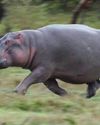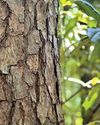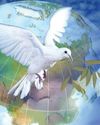Neglecting the significant role of raptors in the ecosystem doesn’t bode well for their conservation, writes Sanctuary’s Assistant Editor Anirudh Nair.

In a country where conservation concerns are more reactive than proactive, those that fly high, slip under the radar.
Most raptors are large-ranging avian predators that are on the top of their food chain species and maintain the population structure of their prey. Their position at the top of the food chain means that their numbers are fewer and makes them sensitive to the introduction of toxins and harmful chemicals into the environment. Considering the plethora of ecological roles played by raptors, it is imperative to study these vulnerable birds of prey.
It was studies done in the early 1970s that highlighted the harmful effects of dichloro-diphenyltrichloroethane (DDT) on Bald Eagles and it was studies in the early 2000s that revealed precisely why vulture populations in India were declining — diclofenac. Raptors perform a sentinel role in the ecosystem by issuing warning signals about food chain toxification, habitat degradation, and waste generation. Research on raptors, rather avians, is still at a nascent stage in India on account of lack of awareness coupled with the disproportionate allocation of funds for large-mammal conservation — a trend that the Raptor Research Conservation Foundation, Mumbai, has been trying to reverse.
For scientific researchers, conservation status of the raptors they wish to study and other related factors come into play. Considered to be extinct for nearly 113 years, the rediscovery of the Forest Owlet in 1997, for instance, prompted researchers to study and subsequently understand many ecological and behavioural aspects vital to the survival of this critically endangered species.
This story is from the {{IssueName}} edition of {{MagazineName}}.
Start your 7-day Magzter GOLD free trial to access thousands of curated premium stories, and 9,000+ magazines and newspapers.
Already a subscriber ? Sign In
This story is from the {{IssueName}} edition of {{MagazineName}}.
Start your 7-day Magzter GOLD free trial to access thousands of curated premium stories, and 9,000+ magazines and newspapers.
Already a subscriber? Sign In

STICKING OUT YOUR NECK!
Maybe it's having the twins, my grandsons from New York, back home again, that reminded me of a conversation I had with them a couple of monsoons ago: \"What's that?\" asked one of them pointing to a huge shell on the ground.

Hippos can get airborne while running fast
Hippos weigh up to two tonnes, but these bulky creatures can go airborne for a period of time.

Tree bark plays a vital role in removing methane from the atmosphere
Trees are known for removing carbon dioxide from the atmosphere, thus benefiting the climate. New research shows that they offer one more benefit.

Lunar caves could shelter astronauts on the moon
Scientists have found an underground cave on the moon not far from where Neil Armstrong and Buzz Aldrin landed 55 years ago.

Manasi Joshi
The Para-Badminton World Champion

International Day of Peace
In Search of Non-violence and Cease-fire

Non-Violent Communication
How to cope with conflict situations

FR ALOYSIUS G. REGO
A short-statured bearded figure glancing through a pair of spectacles, cane in hand, and head swinging with every step, was the most feared figure in the galleries of our school, St. Joseph's Collegiate, Allahabad.

The Architects of the Future
As we celebrate Teachers' Day on 5 September, students from St Charles School, Santacruz East, Mumbai, have come together to share their thoughts and perspectives on the challenges that teachers face in today's rapidly-changing educational landscape.

JUNG & KOOK
With music, stories and news of K-pop all over the place, on Instagram, Twitter, Thread and other social media platforms, and dozens of boy and girl bands emerging from South Korea, believe me when I say that K-pop is irresistible.